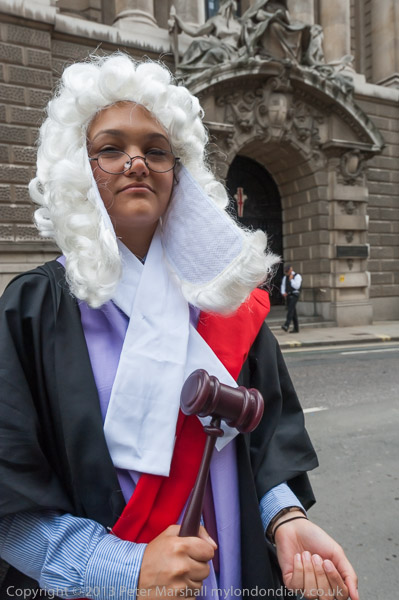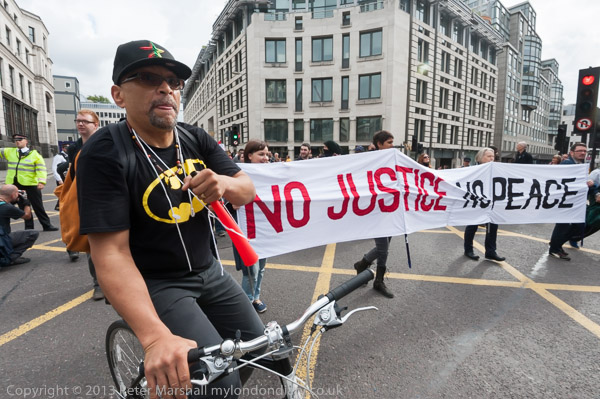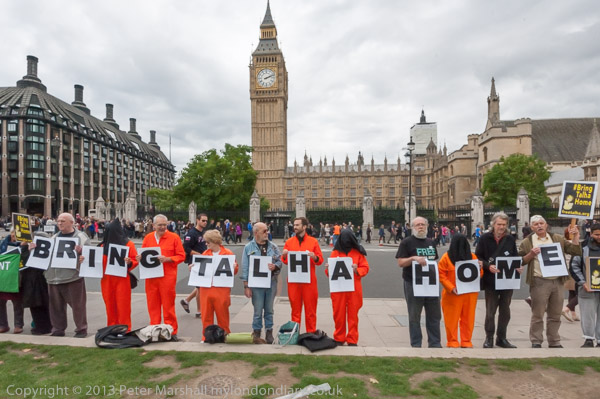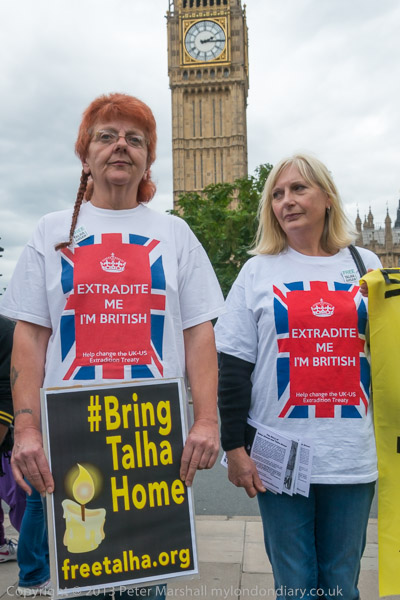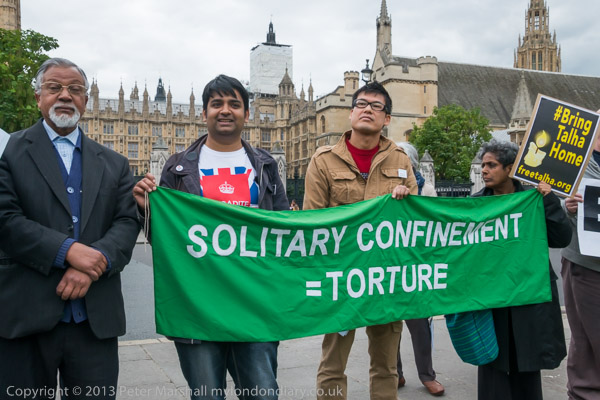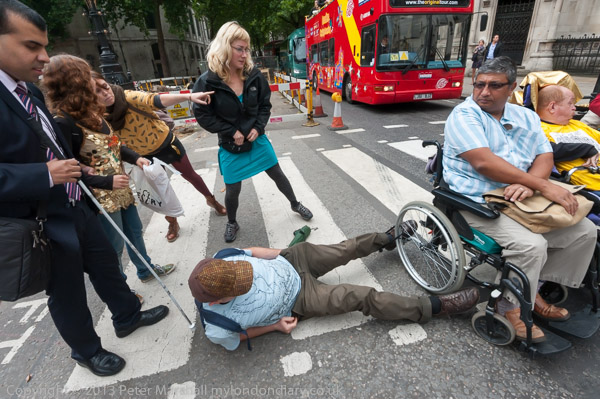
On Saturday 5th October 2013 protesters marched from the Old Bailey to the Royal Courts of Justice in a protest against proposed cuts to Legal Aid. They accused Justice Secretary Chris Grayling of perverting the course of justice by these cuts and held a trial blocking the Strand outside the courts which found him guilty.
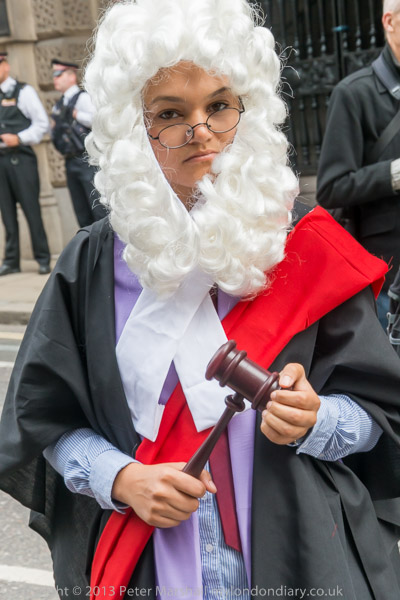
Grayling’s cuts mean that justice has become largely only available to the very rich, with one law for the rich and another for the poor.
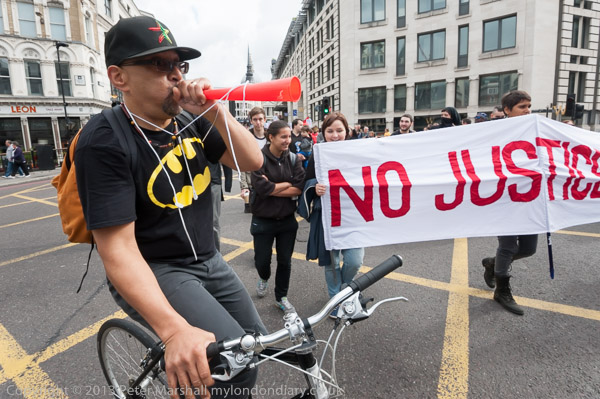
Legal Aid enabled people without personal fortunes to fight unjust arrests, to challenge incorrect decisions by councils and much more. It was never a perfect system, but did at least provide some justice for those without huge incomes, which has now in many cases disappeared.
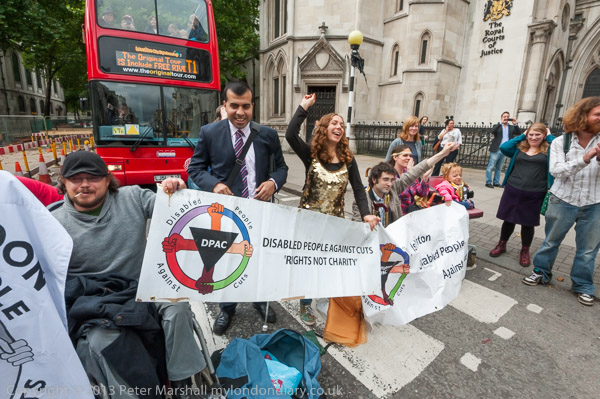
To claim legal aid you must pass two tests. The first is one of the ‘Interests of Justice‘, which largely restricts legal aid to those with charges against them which could result in their being sent to prison.
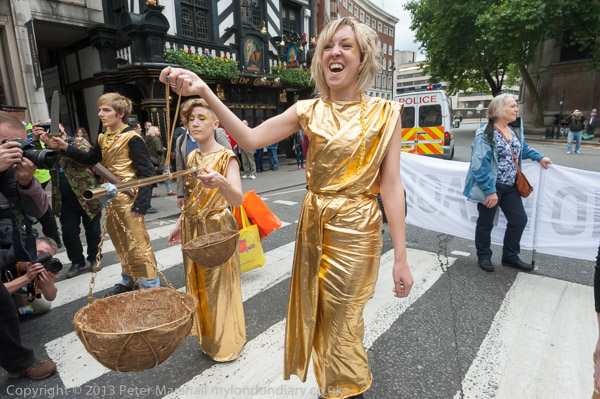
The second test is a means test. If you are on benefits such as income support you are likely to qualify, but if you or your partner have a joint income of over £21,000 you are unlikely to qualify. And if you are single the income limit is just over half that. These limits are considerably less than earnings of people in full-time employment on the current minimum wage.
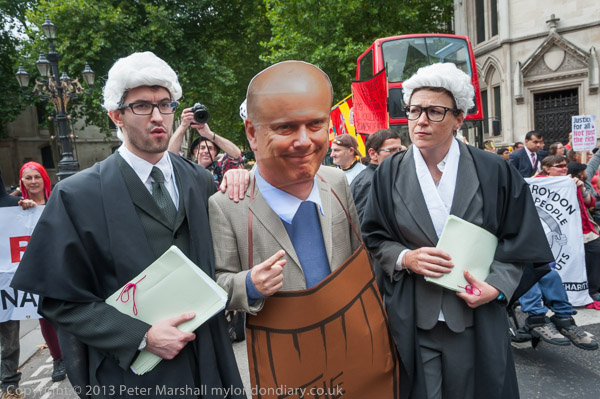
The English legal system has developed through years of tradition and restrictive practices into a highly inefficient and expensive level with only the wealthiest able to afford many of the more highly qualified and experienced to argue their case. It has long been highly stacked against all those unable to afford the most expensive lawyers, though there have always been some distinguished figures ready to fight for some underdogs, at times without payment, as a matter of principle.
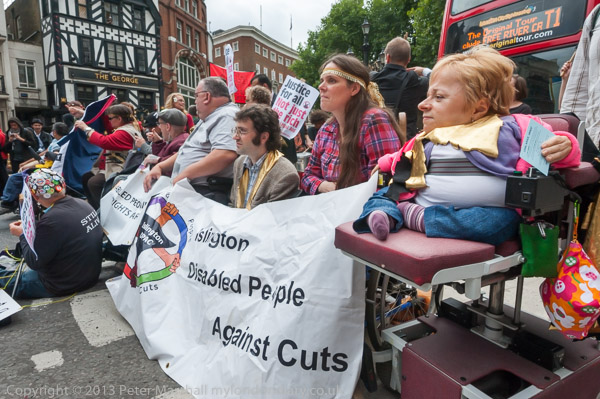
But there are still great areas where only the very wealthy can afford the law, and only the very rich are able to defend the case. Journalists may find themselves gagged, small businesses may be forced to desist because they do not have the resources to fight, even though they may have an excellent case. Our laws, largely enacted to protect the rights of the ruling class, have always favoured the interests of the wealthy.
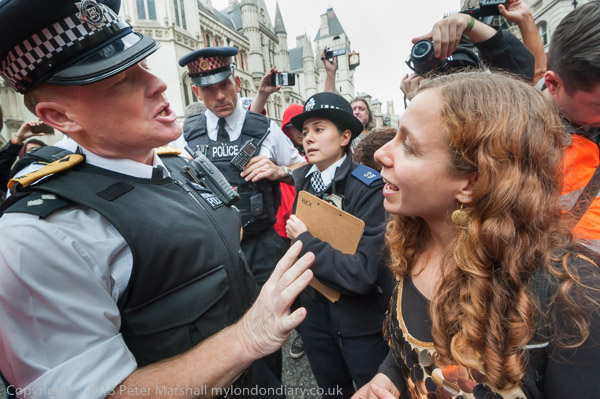
The march gathered outside the Old Bailey, but it soon became clear that we were heading for the Royal Courts of Justice, though perhaps it was this slight subterfuge that enabled some protesters, headed by wheelchair users from DPAC (Disabled People Against Cuts) to block the road in front of the Royal Courts of Justice shortly before the main march arrived to join them.
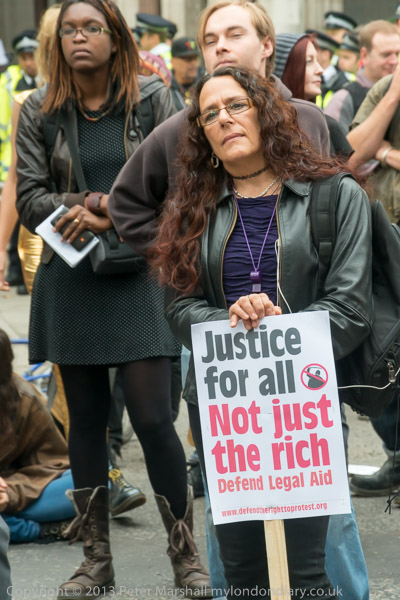
Police quickly arrived to try to persuade the protesters to clear the road, but they were not moving, and after a few minutes began a mock trial of Chris Grayling, present as a man in a mask of his face with a dock around his waist.
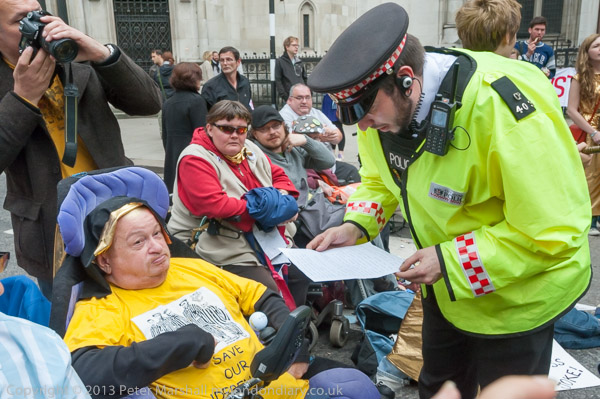
The evidence was presented and witnesses cross-examined by wigged protesters before the larger than usual jury of protesters was invited to give its verdict. Unanimously they found Grayling guilty and the time came for his sentence was pronounced. There seemed to be no agreement about a suitably severe punishment, with most of those suggested no longer being available under UK law. The prisoner was led away (though unfortunately only to the pub opposite rather than prison) and the protest continued noisily, still blocking the road.
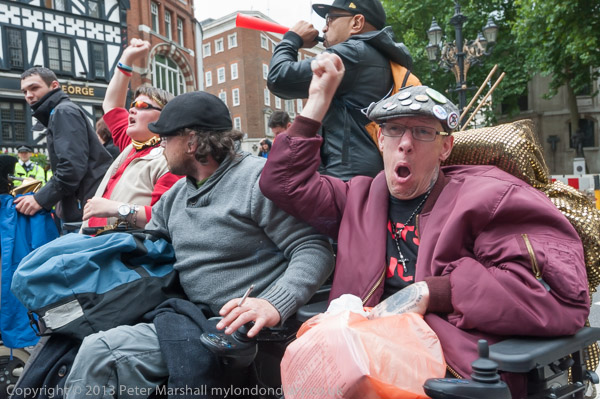
Police had been harassing protesters throughout, trying to get them to clear the road, and threatening arrest, though I think most people just moved to another part of the protest to avoid this. They had managed to clear one carriageway, but were still blocking this with a police van. Eventually DPAC came to a decision that the protest had been successful and it was time to bring it to an end. They told the police they would stay for another five minutes, and at the end of this did so triumphantly.
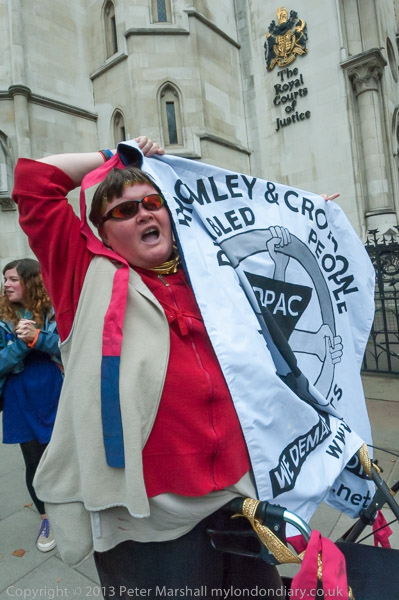
More about the protest and many more pictures at UK Uncut Road Block for Legal Aid.
